Pristine Streams of the Village—Kawauchi, Fukushima Prefecture
Flowing through Kawauchi Village in Fukushima Prefecture is the pristine water nurtured by the lush forests of the Abukuma Mountains. The entire village was once forced to evacuate following the Great East Japan Earthquake and the subsequent nuclear disaster of 2011, but the people are gradually recovering their way of life. Come meet some of the villagers, including a family that relies on the water source that their father established access to some 70 years ago, a man who farms iwana trout—which only inhabit clear waters—and a woman getting ready to open her own café after rediscovering the charms of her hometown during her evacuation. United by the blessings of the stream, these individuals illuminate the spirit of those dedicated to upholding the richness of this unique way of life.
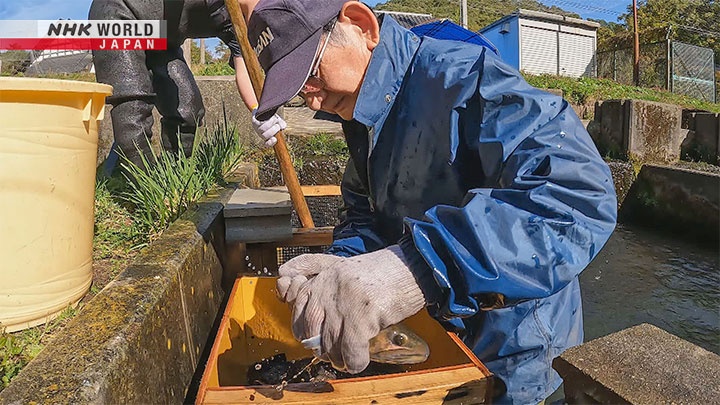
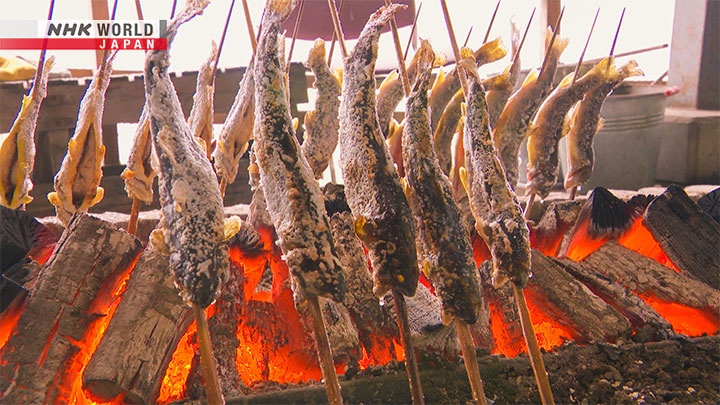
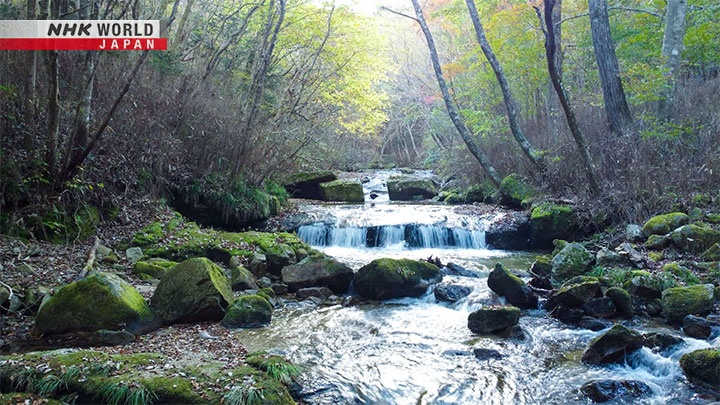
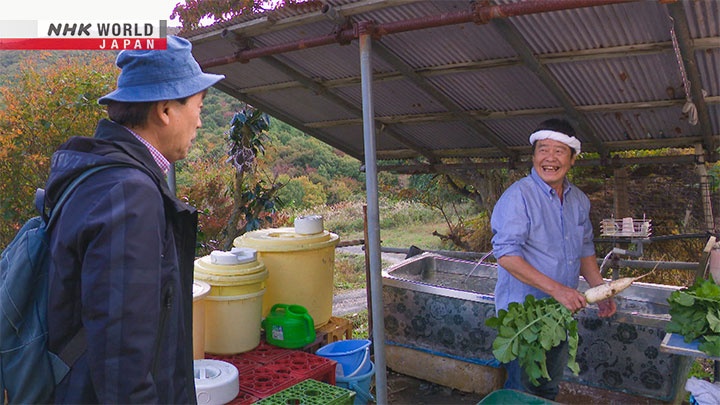
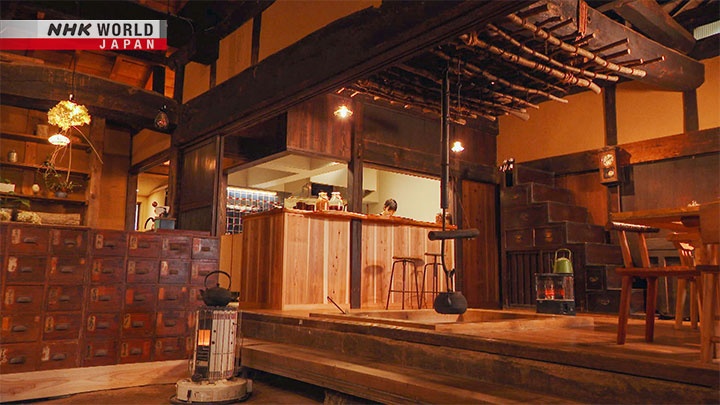
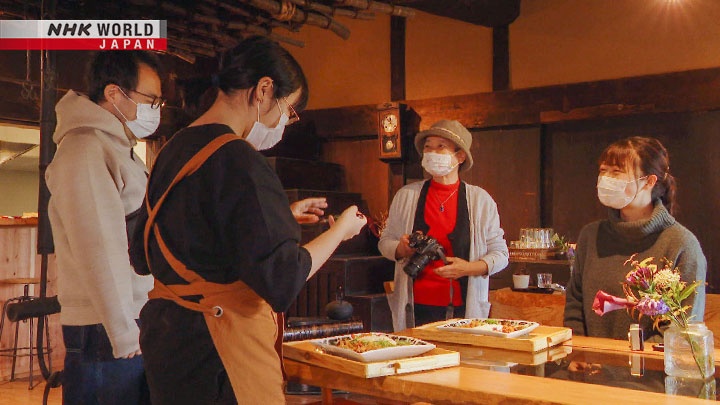
Transcript
Nestled in the embrace of the Abukuma Mountains is Kawauchi,
a small village where just over 1,900 people reside.
The Fukushima Daiichi nuclear disaster forced all the residents to evacuate at one point.
However, life is gradually returning to normal.
Kawauchi is blessed with numerous rivers and streams.
It has long been known as the "Village of Pristine Streams."
Wow. The sound of the water is so soothing.
The breeze is refreshing too.
Autumn, the season of harvest.
They'll harvest the rice soon.
I hear water again.
It's over here.
- Hello.
- Hello.
- May I come a little closer?
- Of course.
I saw a fish jump.
I just saw some fish.
What are you doing here?
I'm separating the males and females to get prepared to collect eggs in November.
Wow.
They're very big. What fish are they?
These are iwana trout.
These are four to five years old.
Watanabe Hideo is 72 years old.
Born and raised in Kawauchi Village, he's been farming iwana for nearly 30 years.
The water drawn from a nearby river is something Watanabe cherishes deeply.
It's perfect for farming iwana, which inhabit clean streams.
There are no buildings, rice fields, or farms upstream,
so the water that flows here is very clean.
That's why these iwana have no unpleasant flavors.
It's our pride and joy.
The nuclear accident in 2011 drastically changed life in Kawauchi.
Watanabe evacuated to Chiba Prefecture with his family.
But there was something that was always on his mind.
It was the iwana he had left behind.
In May the same year, Watanabe returned to the village alone.
When I was considering returning here, my wife asked me what was more important:
the fish or my family?
- What did you tell her?
- I said both were equally important.
The fish are a part of my life.
It might sound pretentious to call it my purpose, but it's something close to that.
Fortunately, no radioactive substances were detected in the river water.
However, repeated examinations with a fisheries research department
showed that they were accumulating in the insects consumed by the fish.
When Watanabe switched to artificial feed, radioactive substances were no longer detected in the fish.
The iwana are transferred to a fishing pond.
It took him two and a half years to resume operations.
I'm letting go now. Now drop the bait in the water.
Pull! That's a big one.
You got a big one. Well done!
All right. That's a big fish.
It sure is. You caught a big one.
Now hold this and the rod too.
Yay. Congratulations.
That's big.
You caught a big fish.
I'm very happy.
They had a great time today and made great memories.
That will encourage them to come back.
They say, "I want to go back again!"
More families have been visiting recently.
I couldn't be happier.
The day winds down as the sun starts to set.
The savory aroma of grilled iwana fills the air.
Serving the fish to guests is Watanabe's greatest joy.
- The iwana are ready.
- Thank you.
- Thank you.
- They look so good.
- Eat them while they're hot.
- Okay.
They're huge!
- How was it?
- It's good.
Five stars.
I want to come back.
- Please. Please do.
- I will!
The village is full of life once again.
The forest of Abukuma is covered with broad-leaved trees.
The soil blanketed with fallen leaves stores plenty of water, giving rise to clear streams.
The water flows into inhabited areas and enriches the people's lives.
As autumn deepens, daikon radishes come into season.
This is Ide Takaaki, 68 years old.
He works in a sewing factory and grows vegetables as well.
They might still be a bit small, but I'm going to pickle them.
He washes the daikon with water from the mountain.
There is no water supply system in Kawauchi, so people depend on wells and spring water.
Ide returned to the village once the water was deemed to be safe.
- There's a hose here.
- Yes, it goes all the way down there.
- Watch your step. You might slip.
- Okay.
We proceed through Ide's backyard for 400 meters.
This is the water source.
There's a pipe buried under here.
The water source was discovered by his father, Mitsuyoshi.
70 years ago, he cleared the mountainside by himself and drew water to the house.
It must have been a lot of work.
I don't think I could do it,
so I want to take good care of it.
It's lunchtime.
This is his daughter, Miyuki.
She does household chores and helps with the farm.
Lunch is ready.
A little break?
- It's lunch.
- Oh, right.
His daughter serves him tea made with their cherished water and a rice ball.
It's good.
A peaceful family life has returned.
- Hello.
- Hello.
This is quite a rustic and traditional building.
Yeah, isn't it?
- What is this place?
- It's a traditional Japanese house café.
Meet Shiga Fuka, a 28-year-old born and raised in the village.
She's renovated a warehouse with two centuries of history into a café.
She plans to open next month.
Yet another person who cherishes the village's water.
- Here you are.
- Ah... coffee. Thank you.
It smells great.
I use the village's well water.
Well water, okay.
I grew up drinking well water, and I think the water here is delicious.
The people who visit love it too, and some even take it home with them.
More than 80% of the residents have returned to Kawauchi.
However, much of the younger generation has not.
Shiga decided to open her café as a means to help the locals rediscover the charms of the village.
The idea came to her when she evacuated to Kanagawa after the nuclear accident.
I've always loved relaxing at home back in Kawauchi.
It's such a joy to admire the seasons, the garden, the trees.
After I evacuated, I'd think about how people in the village used to come and visit me.
It's in those moments after something is gone that you realize how blessed you were.
Afterwards, she enrolled in college but couldn't quite get used to school life and ended up dropping out.
She returned to Kawauchi in 2017.
So many of the villagers thanked me for coming back.
There were lots of young families moving away.
I thought the best way for people to casually come by would be to serve food,
and that's why I decided to start a café.
Shiga is currently in the process of developing the menu.
- Hello.
- Hello.
How's it going?
Shiga has the support of the villagers.
Thank you so much.
I brought these for you.
Wow. A kilogram is quite a lot.
Yeah, it is, isn't it?
And these are eggs in this carton.
There's six in here? You have a pamphlet too.
- Ukokkei chicken eggs.
- Wow. Thank you very much.
He brought her eggs laid by the ukokkei chickens that he grows...
...and berries known as Yamaotoko by the locals.
Do you make jam with them?
My wife makes jam.
I infuse liquor with it.
Drinking is my motivation in life.
You need that drink after work, huh?
I live so I can enjoy drinks.
These carrots were made by women named Sanae and Motoko.
They're not farmers, but they sell vegetables at farmstands.
They're really so full of life and incredibly motivated.
The cafe will be opening soon.
Shiga held a tasting event to have people try her cooking.
- Hello.
- Hello, thank you for coming.
Friends from outside the village came as well.
- Thanks for coming from so far away.
- Hello.
It's been about a year.
She's a classmate from high school.
- Oh, where'd you come from?
- Sendai.
Sendai, great.
She's serving curry with plenty of vegetables.
- There's water over there.
- Thank you.
Both the rice and vegetables are locally produced.
I'm going to take a picture too.
- Excuse me.
- Thanks.
I've never taken pictures of someone else's food.
And I'm taking pictures of the customer's food.
A neighbor asked if I wanted some napa cabbage, and I said I'd love some.
He said he'd bring some later, and when I came home, there was a ton of it right outside.
Kawauchi Village is a stereotypical farming village.
There are still quite a few fading cultural aspects that thrive here.
I hope I can contribute to the village in any way possible to prevent it from disappearing completely.
Much has changed in the years following the tragedy,
but the pristine streams have continued to bestow their blessings upon the village.